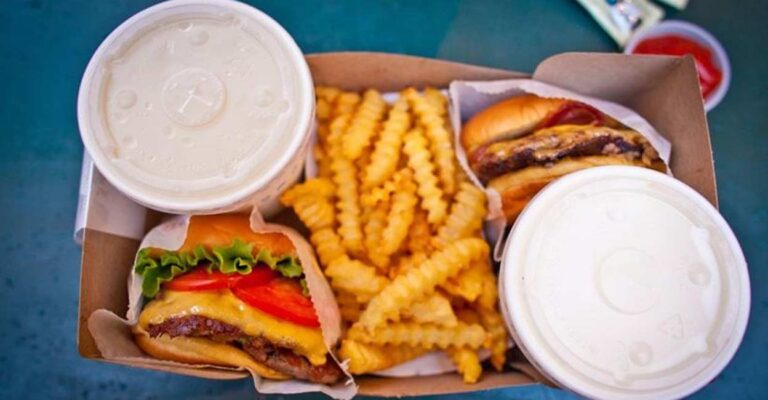New Delhi: There is no way to justify unhealthy junk food, so why do we still crave it? We keep reading about how harmful junk food can be to our health: it can lead to cardiovascular disease, heart attacks, obesity, high blood pressure and a myriad of other health problems. But most of us are unable to control these urges.
A lot of research has been done in this area and Kajal and Bushra, registered dietitians and co-founders of Healthy Steady Go, have to say this about why you crave junk food:
Beliefs around food: Many of us think that healthy and nutritious foods can’t be tasty and delicious! People don’t like to eat healthy foods like fruits and vegetables because they didn’t like them when they were children. Good news! You’re not 5 years old anymore.
Don’t let these old beliefs stop you from trying healthy eating! Did you know that your taste buds change every 5 to 6 years and that it takes up to 10 to 12 tries before you develop a taste for certain foods? We know junk food is tastier, but healthier versions can be made with flavor!
Not getting enough sleep: Many people view sleep as a sign of weakness. Research shows that sleeping less than necessary leads to more cravings and unhealthy foods. A recent study that analyzed brain activity and compared those who slept 9 hours versus 4 hours found that in those who slept less, areas associated with pleasure lit up more when subjects looked at photos of ice cream and pizza. rather than vegetables and yogurt. “Lack of sleep negatively affects every system in our body, leading to an increased need for comfort, whether it’s a warm hug or junk food.”
Stress: In a stressful situation, our body releases a stress hormone called “cortisol”. Fats and sugars have been scientifically proven to help you feel better and provide comfort. As a result, our bodies end up craving these foods more. A study confirmed this, concluding: Sugar appears to reduce cortisol and calm stress signals in the brain.
Eating too quickly: Have you ever wondered why everyone says to chew your food 32 times before swallowing? Well, 32 is a far-fetched number because these days people aim to finish their entire meal in 5-10 minutes! (That’s how busy our lives and schedules have become.) It’s time we all reconsider this habit now. Eating too quickly can create poor communication between the gut and the brain, which can result in no satiety signals being sent to the brain and lead to overeating.
Hormonal imbalances: Whether it’s your monthly period or a pregnant woman, the hormones in your body can create complete chaos. Namely, hormones like leptin and serotonin, which are involved in coordination between your gut and your brain, can lead to very strong cravings at strange times.
Insufficient water and protein intake: Very often, thirst signals are misinterpreted as hunger signals by our minds. If we don’t drink enough water or our meals lack protein, that feeling of hunger will cause us to reach for all the unhealthy junk food lying around the house.
Nutritional deficiencies – An underlying nutritional deficiency can also lead to cravings for specific foods. For example, a magnesium deficiency makes you crave chocolates, nuts or beans. Low sugar levels or a chromium or phosphorus deficiency can lead to sugar cravings. Likewise, a basic sodium deficiency will make you crave salty foods like chips.
Friends, family and colleagues: It’s quite natural, when one person starts to crave junk and expresses it, the other person starts to crave it too. Both then enjoy their meal together in good company. Did you know: “PICA” is a condition in which people crave non-food items, such as chalk, dirt, coins and chunks of ice?
